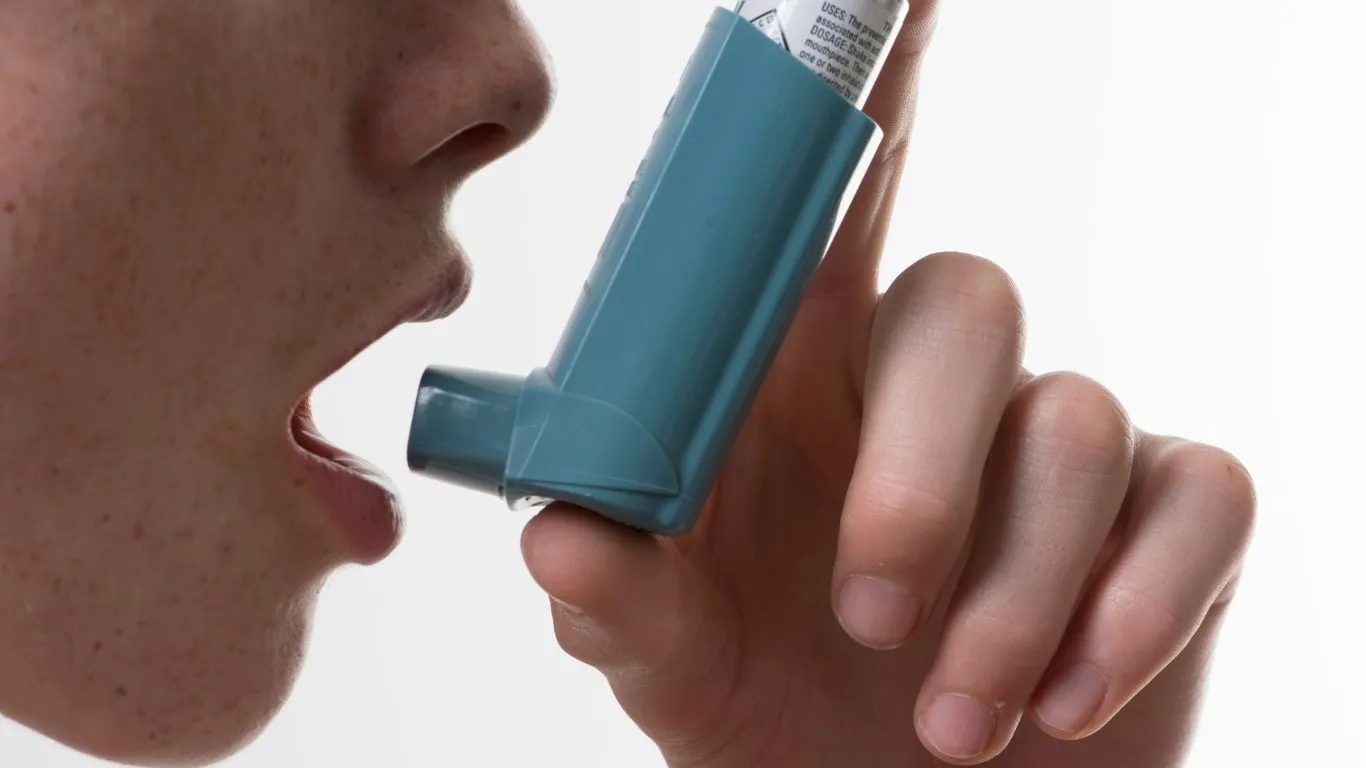Can Asthma Lead to Pneumonia? – What You Need to Know
Ever wondered if having asthma could increase your chances of getting pneumonia? Let’s dive into the connection between these two respiratory issues and what you can do to protect your lungs.
What Is Asthma?
Asthma’s basically your lungs being a little overdramatic. It’s a chronic condition where your airways swell, narrow, and sometimes go into full-on freak-out mode when triggered. Whether it’s pollen, dust, or exercise, the symptoms—wheezing, coughing, and shortness of breath—can pop up at the worst times.

What Is Pneumonia?
Pneumonia’s no walk in the park either. It’s a lung infection that can be caused by bacteria, viruses, or fungi. Think fever, chills, chest pain, and a cough that feels like it’s trying to knock you out. In severe cases, pneumonia can be life-threatening, especially for those with compromised immune systems or pre-existing lung conditions.

Can Asthma Lead to Pneumonia?
Here’s the deal: asthma doesn’t directly cause pneumonia, but it can make you more vulnerable. Why? Because asthma already weakens your respiratory system. When your airways are inflamed, they’re less effective at keeping out germs that can lead to infections like pneumonia.
If your asthma isn’t well-controlled, you’re at an even higher risk. Frequent asthma attacks can wear down your lung defenses, making it easier for infections to take hold.
Signs to Watch For
So, how do you know if your asthma’s turned into something more serious like pneumonia? Here are some warning signs:
- Persistent cough: More intense and productive than your typical asthma cough.
- Fever and chills: Asthma alone doesn’t usually come with a fever.
- Chest pain: Especially if it gets worse when you breathe deeply.
- Fatigue: Feeling completely wiped out is common with pneumonia.
- Shortness of breath: More severe and doesn’t improve with your regular asthma meds.

If any of these sound familiar, it’s time to call your doctor.
How to Lower Your Risk
Good news: you can take steps to stay ahead of the game.
1. Keep Your Asthma in Check
Stick to your asthma action plan. Take your meds as prescribed, avoid triggers, and don’t skip regular check-ups with your healthcare provider.
2. Get Vaccinated
The flu and pneumococcal vaccines are a must. They help protect against infections that can trigger asthma flare-ups or lead to pneumonia.
3. Wash Your Hands
It’s simple but super effective. Germs are everywhere, and clean hands can keep them out of your lungs.
4. Boost Your Immune System
Eat healthy, stay active, and get enough sleep. A strong immune system can fend off infections before they take hold.

Conclusion
So, can asthma lead to pneumonia? Not directly, but it definitely ups your risk. The best thing you can do is stay proactive—manage your asthma, get vaccinated, and don’t ignore symptoms. Your lungs will thank you!
Appendices
FAQs
- Is pneumonia more severe in people with asthma? Yes, asthma can make pneumonia symptoms worse because your lungs are already sensitive. Early treatment is crucial.
- How can I tell if my asthma symptoms are due to pneumonia? Look for fever, chest pain, and a cough that’s more severe or productive than usual. These aren’t typical asthma symptoms.
- Can pneumonia cause long-term damage to my lungs? In severe cases, pneumonia can cause scarring or reduced lung function, especially in those with pre-existing conditions like asthma.
- Are asthma inhalers enough to prevent pneumonia? While inhalers help manage asthma, they don’t protect against infections. Vaccinations and good hygiene are key.
- Should I see a specialist if I have asthma and pneumonia? If symptoms are severe or not improving with treatment, seeing a pulmonologist (lung specialist) might be helpful.
References
- Centers for Disease Control and Prevention (CDC). “Asthma and Respiratory Infections.” (2023).
- Global Initiative for Asthma (GINA). “Managing Asthma: A Patient’s Guide.” (2024).
- National Heart, Lung, and Blood Institute (NHLBI). “Pneumonia and Chronic Conditions.” (2023).
- Mayo Clinic. “Asthma Complications and Treatments.” (2024).
- American Lung Association. “Pneumonia Causes and Prevention.” (2023).
Disclaimer: This information is for educational purposes only and is not a substitute for professional medical advice. Always consult your healthcare provider for personalized guidance.

Bianca Nala is a compassionate Nurse Practitioner with a strong background in primary and respiratory care. As a health writer for Healthusias.com, she combines her clinical expertise with a talent for clear, relatable storytelling to help readers better understand their health. Bianca focuses on topics like asthma, COPD, chronic cough, and overall lung health, aiming to simplify complex medical topics without losing accuracy. Whether she’s treating patients or writing articles, Bianca is driven by a single goal: making quality healthcare knowledge accessible to everyone.






